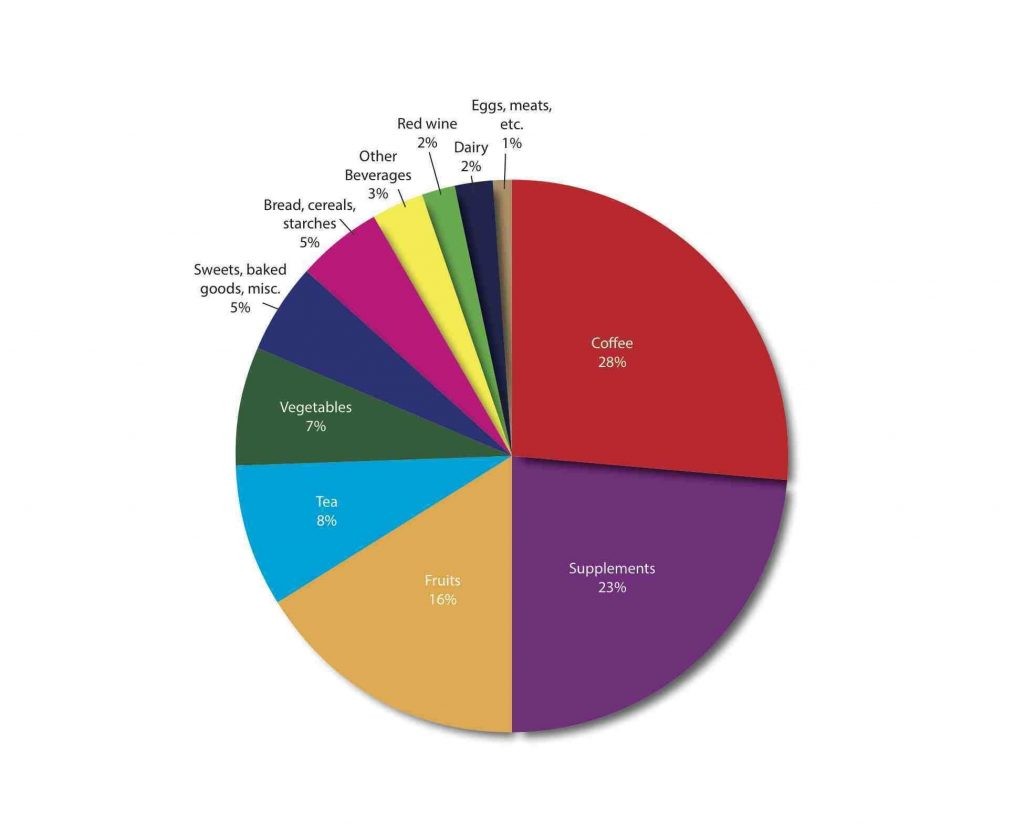Research now shows that men can reduce their risk of prostate cancer by eating foods containing lycopene and selenium, two phytochemicals that act as antioxidant in our body. Now a large new study that suggests men get over a quarter of their antioxidants from coffee has found that consuming plenty of antioxidants from our diet has a weak link to reduced prostate cancer risk.
plenty of antioxidants from our diet has a weak link to reduced prostate cancer risk.
The study – supported in part by AICR – was published in the International Journal of Cancer last week.
For the study, almost 48,000 men answered questions about what they ate, drank and the supplements they took, starting in 1986 and then every four years. Researchers calculated antioxidant intake by assigning a value to each food or supplement.
Overall, coffee was supplying the men with 28 percent of their total antioxidants; fruits and vegetables were giving the men 23 percent; and dietary supplements another 23 percent.
After 22 years, 5,656 men were diagnosed with prostate cancer. When the researchers looked at how many antioxidants the men consumed both from diet and supplements they did not find a link to prostate cancer risk.
But when they focused on diet alone, the men who ate or drank the highest amount of antioxidants had a 9 percent lower risk compared to those who consumed the least antioxidants. The link was a weak one but if verified, it’s important given that prostate cancer is the most common cancer diagnosed in men (apart from skin cancer).
Then the researchers teased apart coffee from the diet. A 2011 study with this same group of men found that drinking six or more cups of coffee a day lowered the risk of the most lethal form of prostate cancer. That study was also funded by AICR; we wrote about that in an earlier post.
Compared to men who consumed the least coffee, the men who drank the most had a 23 percent reduced risk of prostate cancer. The findings were stronger for the lethal form of the cancer. There was also a smaller but significant link between fruits and vegetables intake and low grade prostate cancer risk.
There was no link between multivitamins and other supplements for lower risk; data hinted at a higher risk among the men who took the highest amount of multivitamins and other supplements compared to those who ate the least.
The protective effect of coffee may be due to several factors, including antioxidant
properties and glucose methabolism, said the study’s lead author Kjell Magne Russnes, MD, of Oslo University Hospital. Coffee can also influence sex-hormone balance and has anti-inflammatory effects.
But you cannot rule out a protective effect from the antioxidants in fruits and vegetables, said Russnes. “The total antioxidants from fruits and vegetables was not analyzed separately due to limitations in the study. One other possible explanation is that coffee intake is easier to measure… and more accurate than for fruits and vegetables.”
You can read about how to reduce the risk of prostate cancer on our site.







As an avid coffee drinker, I’m happy to see that it will help give me a slight advantage by lowering my risk of prostate cancer.
Was there any differences between the type of coffee that was drank?